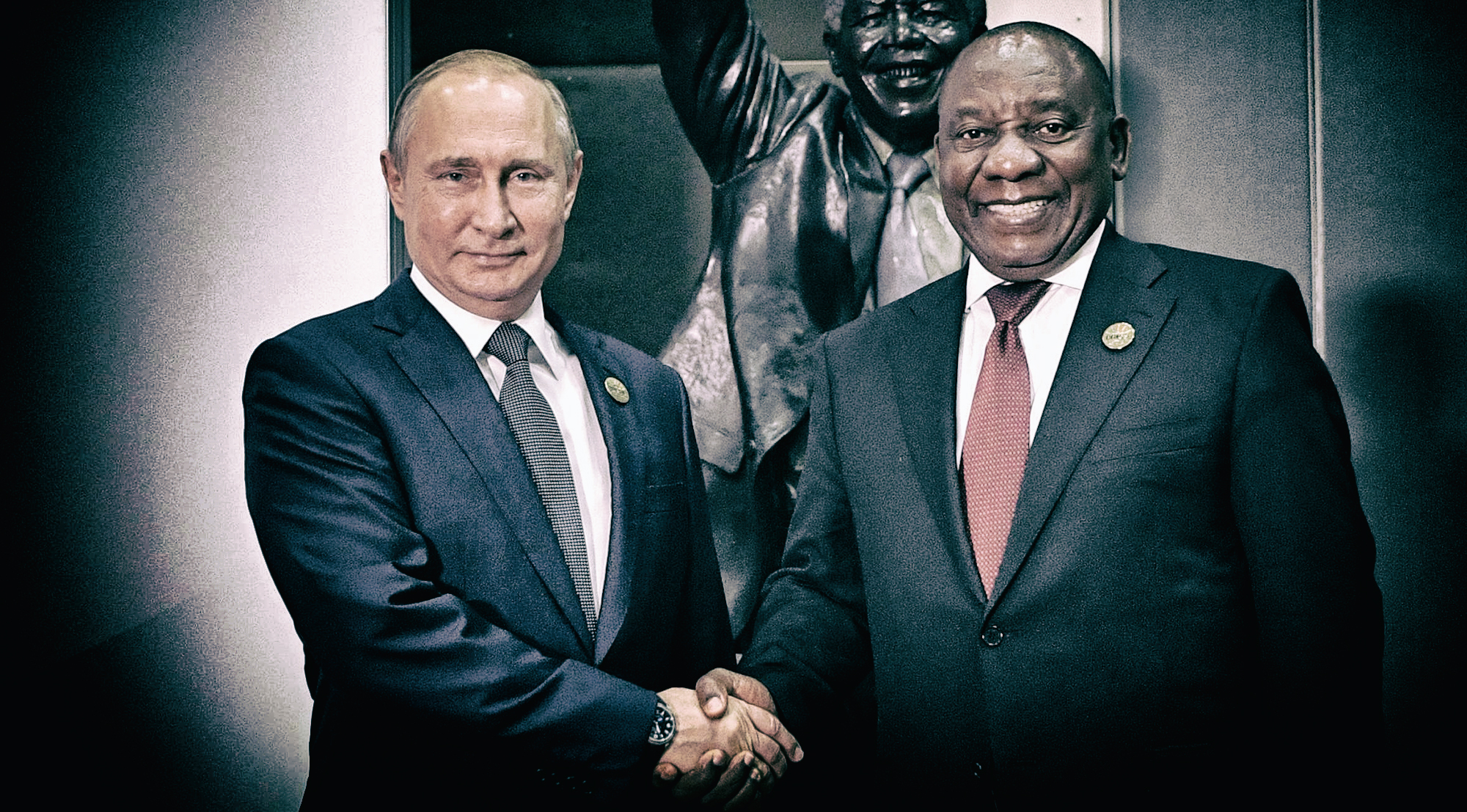The SA Reserve Bank made the stark warning in its bi-annual Financial Stability Review (FSR).
“Since the release of the November 2022 FSR, two new risks have been added to the RVM [Risks and Vulnerability Matrix], namely (i) capital outflows and declining market depth and liquidity; and (ii) secondary sanctions amid heightened geopolitical polarisation,” the FSR said.
“The risk of secondary or indirect sanctions being imposed on South Africa if its neutral stance on the Russia-Ukraine war is perceived as unconvincing has increased since the previous FSR...
“Should this risk materialise, the South African financial system will not be able to function if it is not able to make international payments in USD and it could lead to a sudden stop to capital inflows and increased outflows,” the FSR warned.
That, in a nutshell, is the risk the government is taking with a “neutral stance” that most commentators regard as pro-Russian.
Over 90% of South Africa’s international payments are processed by the Society for Worldwide Interbank Financial Telecommunication system, or Swift.
Exclusion from Swift would make such payments impossible, the FSR’s lead author, Herco Steyn, was quoted as saying by Bloomberg. That would make it almost impossible to import things like oil and portable electronics and wheat and lots of other things that South Africa’s economy and society need but don’t produce.
So, it’s kind of a big deal.
South Africa says it is neutral on the Russia-Ukraine war – a war Russia started with an unprovoked invasion of its neighbour – abstaining from UN votes condemning Moscow.
And then, of course, US Ambassador Reuben Brigety accused South Africa this month of supplying weapons to Russia when the mysterious Lady R was docked in Simon’s Town in December. President Cyril Ramaphosa has appointed a three-member panel to probe the fiasco.
Read more in Daily Maverick: Ramaphosa appoints Judge Mojapelo to chair inquiry into Russian ship Lady R
There are many in the ANC who seem enchanted by Vladimir Putin and Russia despite the overwhelming evidence that the Kremlin is both authoritarian and predatory. One perception about this state of affairs is that it is less about Soviet nostalgia and more about cadres wanting to chow at some trough the Russians produce, regardless of the consequences for the wider economy.
And the consequences could be dire.
“The events reported in the media, and recent remarks by the US Ambassador to South Africa, could change perceptions about South Africa’s neutrality, which could build up to a point where it triggers secondary sanctions being imposed on South Africa,” the FSR said.
“Considered along with the recent FATF greylisting, the potential implications for the South African economy are severe, and the considerations from a financial stability perspective, pertinent.”
This is unfolding against the background of South Africa being placed on the Financial Action Task Force’s “greylist”, which means it has shortcomings in tackling illicit financial flows. Like the kind associated with mafia states such as Russia.
Read more in Daily Maverick: It’s official — South Africa fails to avoid greylisting...
“Even in the absence of formal secondary sanctions, counterparts to South African financial institutions could put institutions under intensified scrutiny and decide to reduce their exposure to South Africa as part of their own risk management processes...
“Should secondary sanctions be imposed on South Africa, the most immediate impact would be the tightening or termination of correspondent banking relationships and increasing costs of cross-border payments.”
And then there is Agoa.
“There is a risk that South Africa’s favourable access to the US market in terms of the African Growth and Opportunity Act (Agoa) may not be renewed when it expires in 2025, which will have severe consequences for corporates and industries who have benefitted from this agreement since its inception in 2000,” the FSR warned.
In short, a calamity that altogether will make Stage 8 power cuts look like a picnic.
The rand late on Monday was trading around 19.68/dollar, near its record lows. What happens when rands can no longer be traded for dollars? Well, the zeroes will likely add up. DM





 Russian President Vladimir Putin (L) shakes hands with South African President Cyril Ramaphosa during the BRICS Summit in Johannesburg, South Africa, 26 July 2018. (Photo: EPA-EFE / Sputnik / Kremlin Pool)
Russian President Vladimir Putin (L) shakes hands with South African President Cyril Ramaphosa during the BRICS Summit in Johannesburg, South Africa, 26 July 2018. (Photo: EPA-EFE / Sputnik / Kremlin Pool)